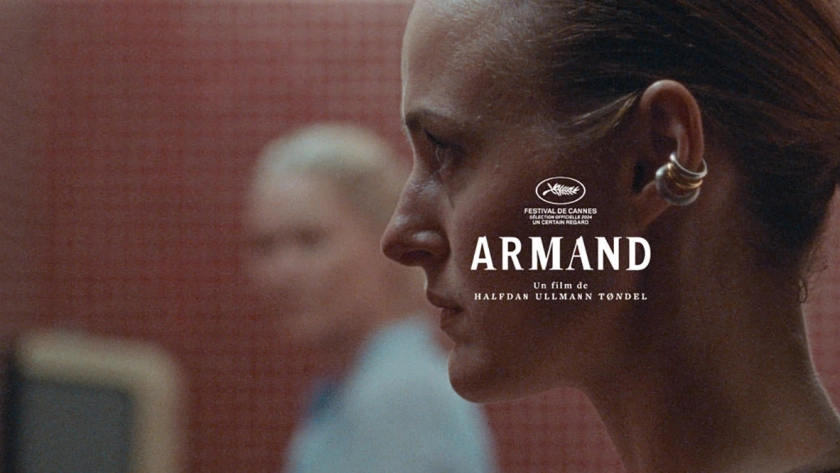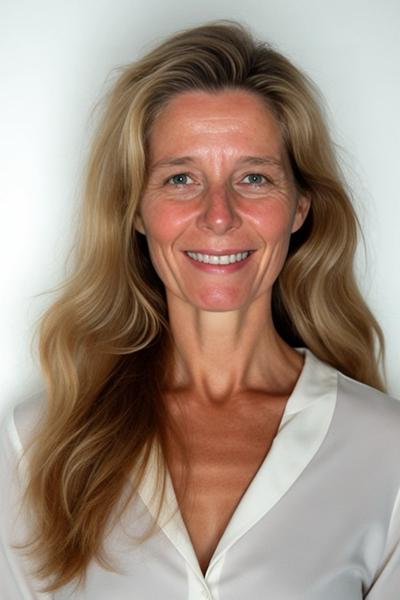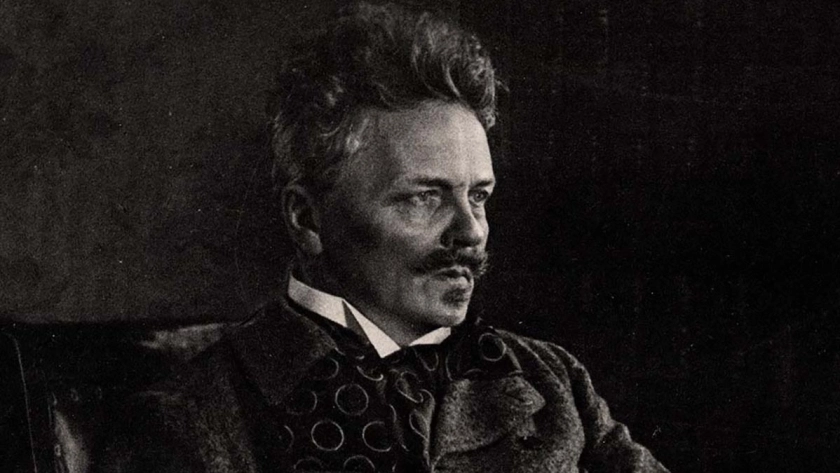
The debut film by Halfdan Ullmann Tøndel as a director, winner of the Caméra d'Or at the last Cannes Film Festival, Armand was also Norway's submission for the Oscars…
Released in October 2024 in Sweden, it will be available soon in english. The film stands out primarily for its highly refined cinematic language despite the young age of the director (34 years old) and, above all, for its unique style, oscillating between dazzling lyricism and an unsettling nightmare…
Add a masterful cinematography, a deeply nuanced sound design, and, most importantly, exceptional actors, and you have a film that must not be missed under any circumstances!
Synopsis
Two six-year-old boys, Armand and Jon, are said to be involved in a conflict, and the parents are quickly summoned to school for a crisis meeting. It’s Armand's mother, a famous actress (played by Renate Reinsve), who arrives first and must wait for the other parents to arrive without knowing the nature or severity of the incident. The school hopes that, through this meeting and dialogue with the parents, they can minimize or even suppress the incident, but soon the tone escalates between the parents, and the conversation takes an unexpected and irreparable turn. The newly graduated teacher struggles to manage the exchange and emotions of the adults.
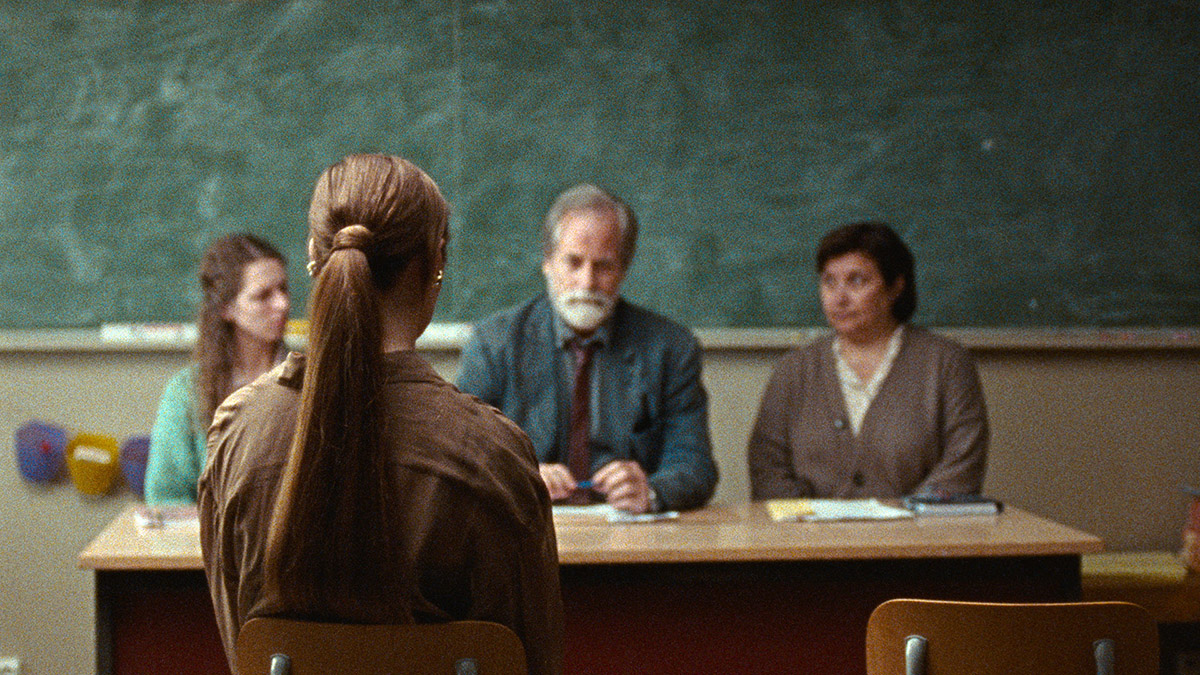
Elisabeth (Armand’s mother) struggles to accept the accusations presented to her, as they are too vague and ambiguous… Word against word, mother against mother, accusations fly, and poorly healed wounds reopen… it quickly becomes clear that the conflict goes far beyond what happened (or didn’t happen) between the children… suspicion and despair, prejudice and rumors take hold of the adult confrontation, now puppets in an infernal storm of conflicting emotions…
The director, Halfdan Ullmann Tøndel
When we dig a little into the director's background, one thing is clear: he has a rather favorable genetic heritage. Grandson of Ingmar Bergman and Liv Ullmann, son of the Norwegian novelist Linn Ullmann, a family tree full of promise that leaves little room for doubt at first… though some famous examples have seen their wings a bit clipped along the way…
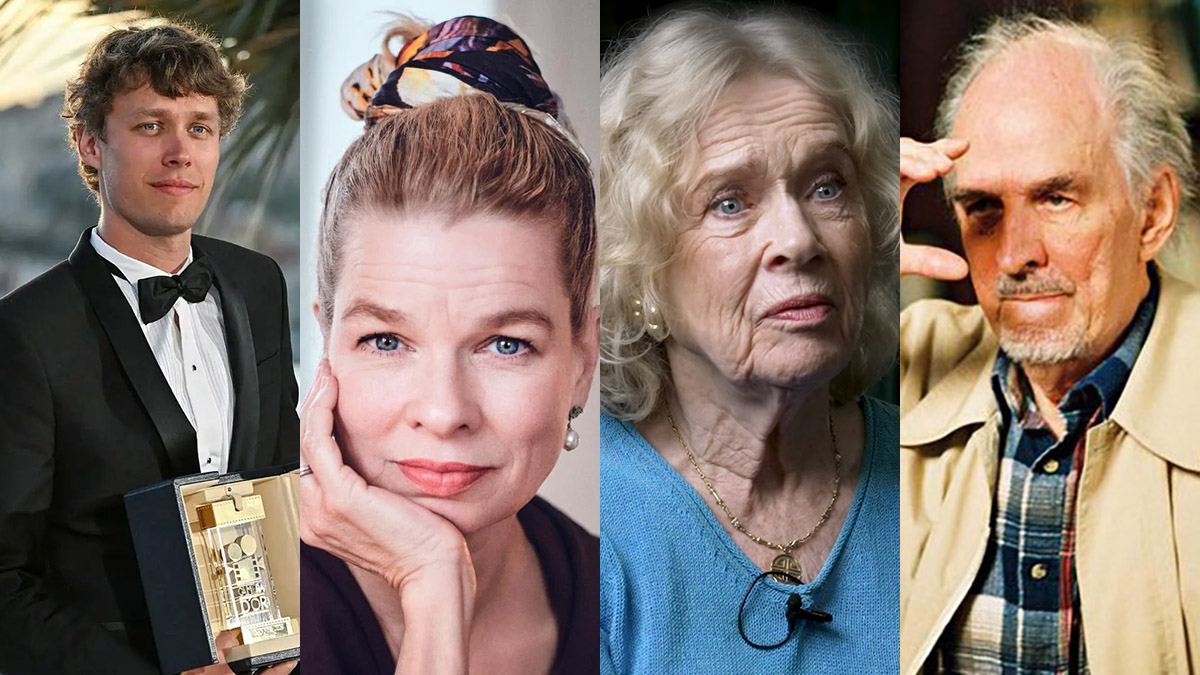
Trained in Norway, has already won many awards for his short films, he also crossed paths with another great Norwegian director, for whom he was a screenwriter and then an assistant director: Joachim Trier (director of Oslo, August 31st, Thelma, and Julie in 12 Chapters) for Thelma, released in 2017. While it's certain that his name helped attract attention to him, Halfdan Ullmann Tøndel clearly stands out for his own merits and for the unique and original nature of what he has managed to create. It will truly be exciting to follow his evolution as a filmmaker in the coming years.
A powerful film and a cinematic experience
Armand is a powerful and memorable film, masterfully directed by a filmmaker who skillfully juggles between realism and dreamlike elements with remarkable brilliance. It is a film that fits within a particular strand of Norwegian cinema, where genres mix and challenge all our usual understanding codes… It’s Joachim Trier and his Thelma, straddling the line between fantasy and thriller, it’s Eskil Vogt and his The Innocents, blending fantasy drama and psychological horror, it’s Thea Hvistendahl and her Hantering av de odöda, between the supernatural and poetry. The viewer is tossed around for the entire duration of the film, never catching a breath but living a cinematic experience like few others. It’s a film that remains etched in the mind precisely because it escapes all codes and literally sweeps the viewer away.
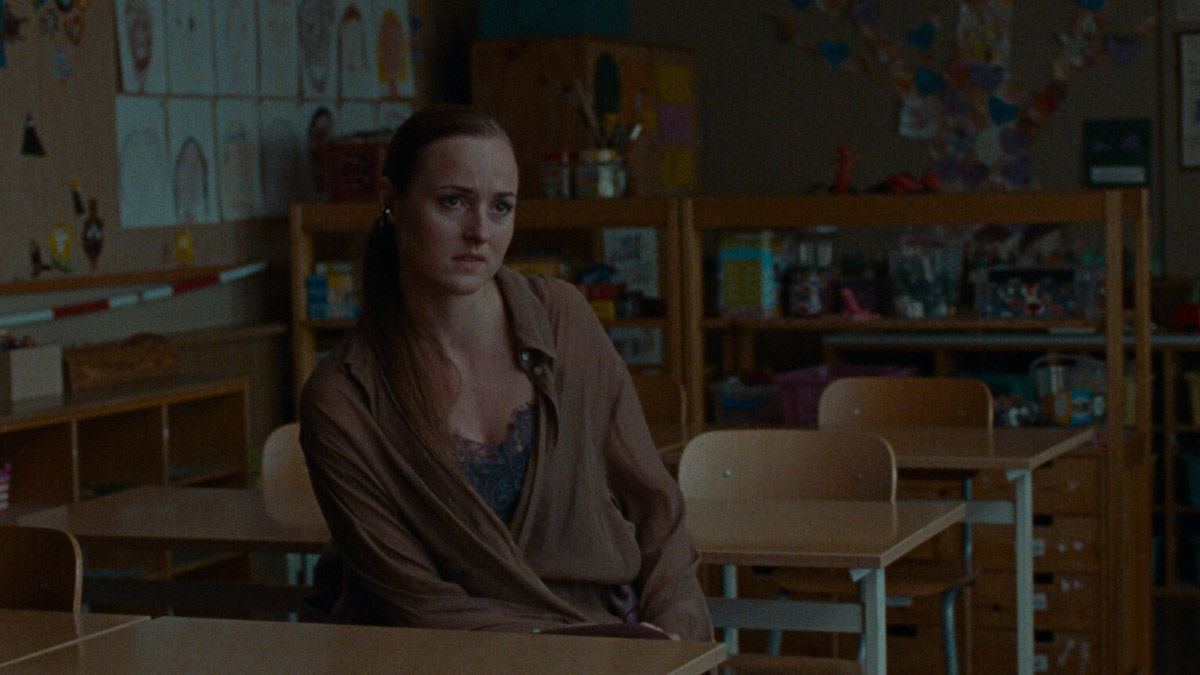
It is surprising and intriguing to see how he dares to prolong certain scenes, beyond the limit of reason and the comfort zone of the viewer, to enter a territory where no one really wants to be: that of discomfort and embarrassment. Perhaps this is a common trait with another Swedish director, Reuben Östlund, but, there it is more about provocation, whereas here it is more of a gradual and necessary mental collapse or disintegration… At one point, Armand's mother starts nervously laughing at a very inappropriate moment and cannot stop for about five minutes. The others remain silent, which only intensifies the sense of unease. We slowly slip into a form of madness… where all the reference points disappear, and there is a total inability to grasp any meaning.
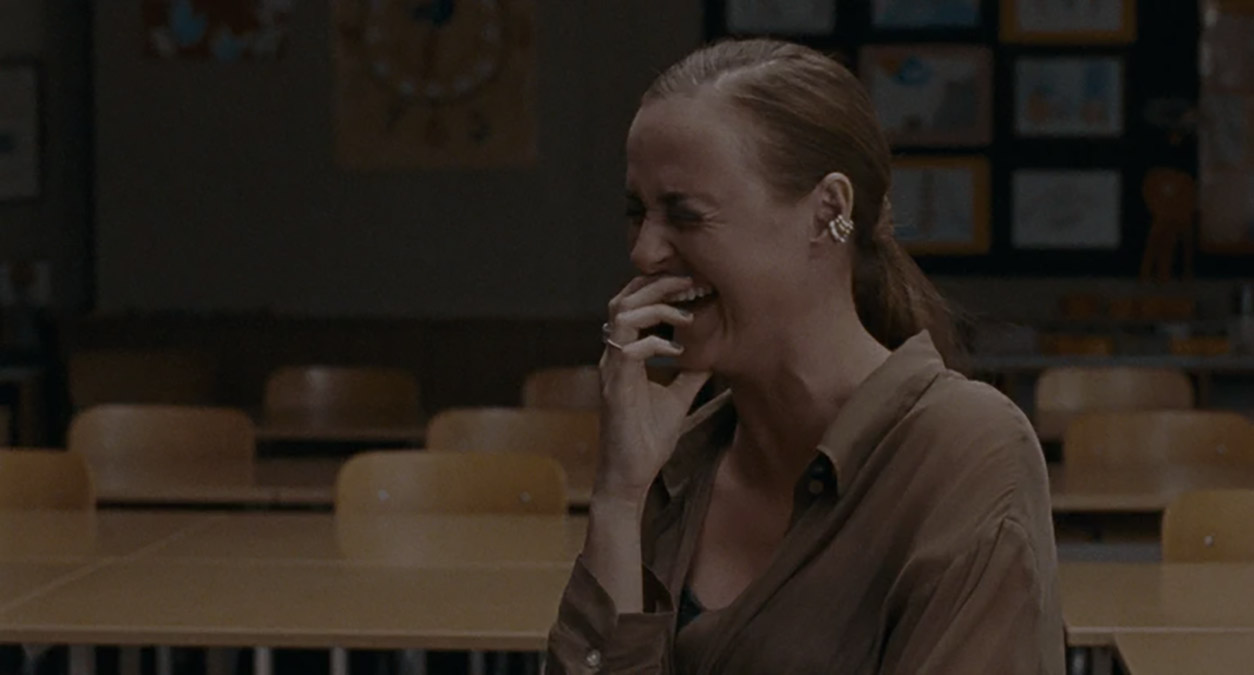
Every detail is carefully crafted to build a dense narrative, sometimes with elements of a thriller: the broken fire alarm that goes off randomly, the recurring nosebleeds of the staff manager, the heavy rain that creates an apocalyptic atmosphere, but above all, a crucial detail: we never see Armand and Jon, the two children mentioned throughout the meeting… and at certain moments, one might even wonder if these children are ghosts as well…
The lead actress, Renate Reinsve, is breathtaking!
The performances of the actors are naturally at the heart of this film, which takes place primarily in a small classroom, in a closed setting, and here, each actor gives their best performance. In particular, Renate Reinsve, in the role of Elisabeth, has several scenes where she can truly showcase the full range of her talent.
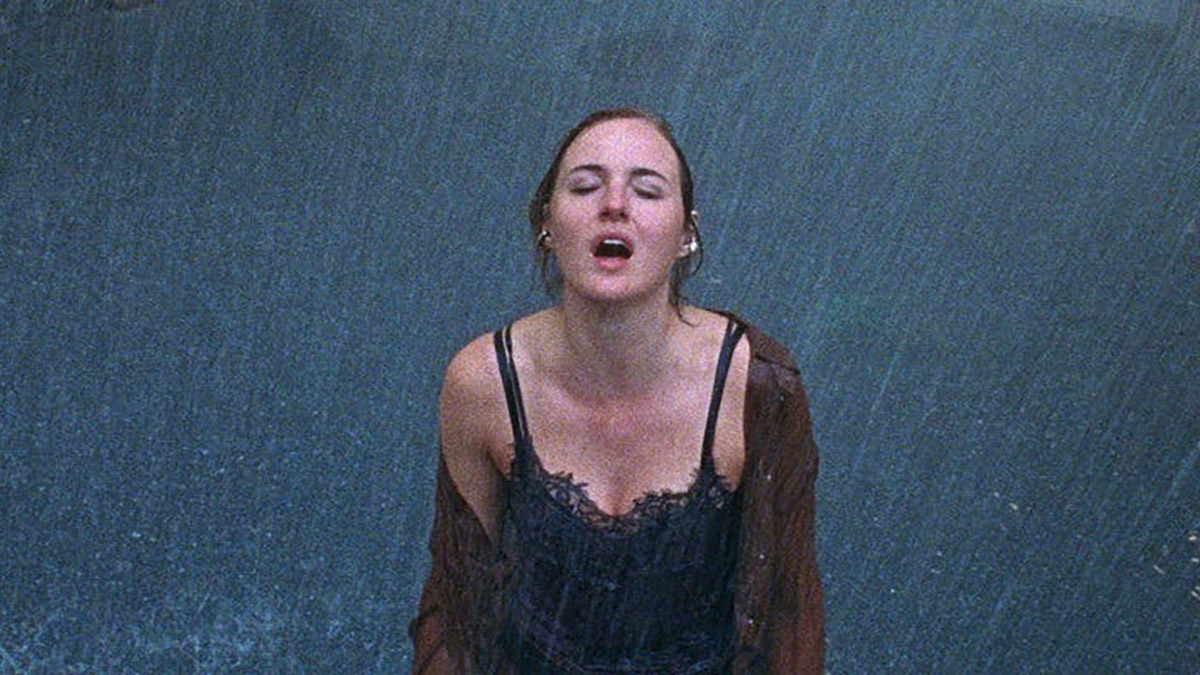
Renate Reinsve is the actress from The worse person in the world by Joachim Trier (for those who have seen it), for which she has received numerous acting awards, including one at Cannes. From her very first appearance on screen, first behind the wheel of her car and then in the school hallways, wearing a red hooded raincoat, her high heels clicking on the school floor, the character is there in all her strength but also in her many wounds and flaws…
She plays Elisabeth, a mother in turmoil and recently widowed, who is now raising her son Armand alone: “She’s an actress and surrounds herself with drama,” says Jon’s mother in the film, so she is the complete opposite of the typical school parents. She finds herself, successively, playing the role of a manipulative actress, the scapegoat, and the victim, with the roles blurring, and when it is no longer possible to speak or express things with words, Elisabeth, helpless, starts to dance her emotions, treating us to choreography as powerful as it is unexpected.
Without her, the film would not have the same depth, and the director admitted to have built the film around her character.
To get a glimpse of her many talents, you can watch the trailer below:
 en
en FR
FR IT
IT ES
ES
